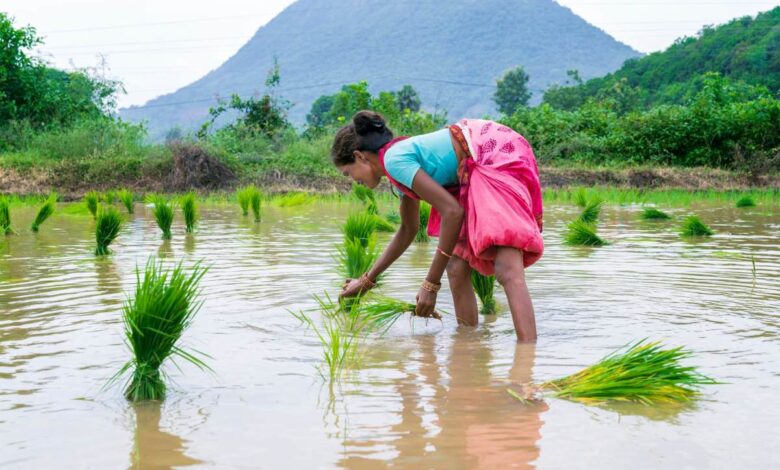AI Startup Helps Rice Farmers Fight Climate Change

▼ Summary
– Mitti Labs develops technology to measure methane emissions from rice farming and trains farmers in climate-friendly practices.
– The startup partners with organizations like The Nature Conservancy to extend its reach and verify on-the-ground climate projects.
– Mitti uses AI-powered models and remote sensing data to track methane emissions and generate carbon credits from reduction efforts.
– Rice farming contributes significantly to methane emissions due to flooded fields creating oxygen-free conditions that produce methane.
– The company’s approach benefits smallholder farmers by improving profitability and making verification cost-effective through scalable technology.
Addressing climate change requires innovative solutions that directly engage with the world’s most critical food systems. One startup making significant strides in this area is Mitti Labs, which focuses on reducing methane emissions from rice farming through advanced technology and strategic collaborations. Based in New York, the company has developed AI-driven tools to measure methane released by rice paddies and works closely with farmers to implement more sustainable agricultural methods.
Mitti Labs recently announced a partnership with The Nature Conservancy to promote regenerative, no-burn farming techniques in India. Using its proprietary software, the startup measures, reports, and verifies the impact of on-the-ground efforts led by local workers. These initiatives help farmers adopt practices that lower methane output while maintaining, or even improving, crop yields.
According to co-founder Xavier Laguarta, most project operations are carried out by individuals from the communities where the work is taking place. This localized approach not only builds trust but also ensures that solutions are culturally and environmentally appropriate. While Mitti’s primary focus remains methane reduction in rice cultivation, the company is expanding its software offerings to third parties interested in tracking indirect emissions.
Mitti Labs is not the only organization exploring software-as-a-service models for climate action. Another player, Mati Carbon, develops MRV (measurement, reporting, and verification) tools for enhanced rock weathering, a process that sequesters carbon while enriching soil health. What sets Mitti apart is its specific emphasis on rice and its integration of remote sensing with artificial intelligence.
The methane reduction projects facilitated by Mitti generate carbon credits, which are tracked through its platform. A portion of the revenue from these credits goes back to farmers and their communities, providing a tangible financial incentive for adopting climate-friendly practices. Laguarta notes that participants typically see around a 15% improvement in their bottom line, a meaningful boost for smallholders operating on narrow profit margins.
Rice farming is a major source of methane emissions due to the flooded conditions of paddies, which create oxygen-free environments ideal for methane-producing microbes. This potent greenhouse gas has 82 times the warming potential of carbon dioxide over a 20-year period, and rice cultivation accounts for roughly 10–12% of human-driven methane releases globally.
To monitor these emissions without relying on costly physical sensors, Mitti uses satellite imagery and radar capable of penetrating clouds, water, and vegetation to gather subsurface data. This information is processed by AI models trained on both satellite inputs and results from field studies, enabling accurate, scalable verification.
In India, where the average farm size is just one hectare, remote sensing makes it feasible to monitor countless smallholdings affordably. Partnerships with organizations like The Nature Conservancy help extend the reach of these tools, bringing sustainable practices to millions of farmers across rice-growing regions in Asia.
Laguarta emphasizes that the collaboration model is key to scaling impact. By developing tools in partnership with trusted organizations, Mitti Labs can adapt its technology for use in diverse programs throughout the region, supporting both ecological and economic resilience in agricultural communities.
(Source: TechCrunch)





